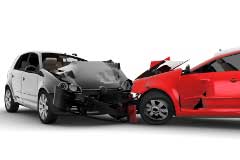How to Keep Your Used Car on the Road Longer - Vol.24
If you're driving a used car in Africa, you already know how difficult and potentially dangerous much of the terrain can be. Roads are not always well maintained, and some even end in dirt trails. In some areas, mud can make a road all but impassable. Hot days and cold nights can play havoc with a used car's engine, and the unwary traveler can find himself in a precarious situation far from any mechanic's shop if his car breaks down. Moreover, cars are expensive, and no African driver wants to have to replace a vehicle before its time. Of course, the only way to prevent that is to do everything you can to keep your used vehicle in good repair and extend its road life.
Maintenance
Keeping your used car on the African roads longer can be a challenging task. The key is to learn to prioritize the things you need to do to make that happen. First and foremost, you must focus on the types of maintenance that are designed to ensure that your car's moving parts continue to work. Radiator hoses, belts, and fuel lines should all be regularly checked and repaired or replaced when necessary. The car's battery – essential to operation – should be inspected, with any corrosion of the battery or its cables being cleaned on a routine basis. The constant velocity joint, fans, and all filters require regular checkups and maintenance when necessary.

Keeping it alive
Beyond the attention you pay to the actual parts on your used car, you also need to maintain fluid levels if those parts are to function properly. Oil needs to be changed every four thousand miles or so – failing to do so can result in the death of your car, so take this very seriously! Radiator water, antifreeze, and transmission fluid all have critical roles to play in the proper functioning of your car on the African roads. All should be inspected and attended to with regularity. Of course, it is also a good idea to carry extra oil, antifreeze, and water in your trunk just in case something happens when you are out on the road.
Safety

You also need to ensure that the safety features on your car are well maintained. An accident can damage your used car so severely that you will be unable to operate it – the safety features will help to ensure that no accidents occur. Windshield wipers are an often-neglected part of car maintenance, but a vital one for anyone driving in Africa. Dust, mud, and rain can combine to quickly form opaque layers on any windshield. To drive properly, you need to see! Having working windshield wipers and fluid are essential for clearing off any debris.
In addition, lights and brakes must be maintained in working order. Check the brake pads frequently, and make sure that there is sufficient brake pad fluid to enable them to operate properly. Your tires should always be maintained with the proper amount of air, and you should be alert to signs that your tire treads are wearing unevenly. This can be an indication that your suspension is not right.
Above all, always remember that driving in Africa can be decidedly different from driving anywhere else in the world. Though there are many good roads in Africa, and many good mechanics, there are also many areas with underdeveloped road systems and no mechanics for many miles. Your safest and most sensible course of action is to maintain a regular schedule of inspection and repair for your car and ensure that it stays on the road in working order for as long as it can.